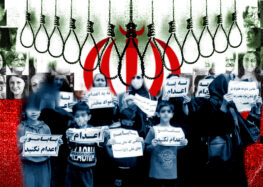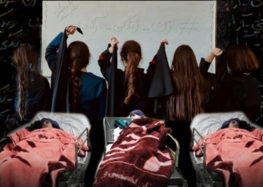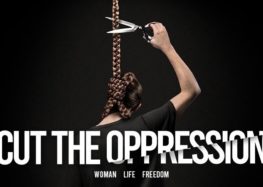Ebadi Calls for March Demanding Gender Equality; Urges Constitutional Change
Shirin Ebadi, the 2003 Nobel Peace Laureate and Director of the Defenders of Human Rights Center, has called on Iranians to hold public rallies on the occasion of International Women’s Day, 8 March, demanding reform of constitutional laws to achieve gender equality. She described her call as the beginning of a civil rights movement and not a political demand.
In her statement, issued on 2 March 2011, she said: “March 8th 2011 (the International Women’s Day) is a special day. On this day, besides the equal rights of women, the democratic aspirations of the Iranian people will also be demanded. We, as women though, should be vigilant, ensuring that in the midst of political upheaval and political developments, we do not forget about our long time demand for ‘equal rights.’ On this day, shoulder to shoulder with our brothers, we will come to the streets to support the popular and broad democratic demands, because achieving ‘equal rights’ is possible only if voiced in a democratic system. But, we must not allow anyone to disregard our demands under the auspices of preventing crisis or avoiding divisiveness.”
She further noted that, “Thirty-two years ago on March 8, International Women’s Day, a statement broadcast on national television, stripped women employed by the government of one of their most basic rights–the freedom to choose their own dress. Since then and incrementally the identity and the character of the Iranian woman has become the target of attacks by men who didn’t even respect the rights of their mothers. Those who viewed themselves more worthy than even their mothers, shamelessly wrote laws which valued women as half that of men. Laws that proclaimed that ‘the Dieh or the blood money of women was valued at half that of men.’ Ungrateful politicians had forgotten women’s struggle in ensuring the victory of the Revolution and through their laws they stated that ‘the testimony of two women was to be equal to the testimony of one man in court.’”
Calling on Iranian women, she said, “Dear Sisters, for years women’s demands for justice have been silenced under a variety of pretexts–on occasion with the excuse of misuse by those opposing the Revolution, other times blaming the war with Iraq, or for the preservation of national security or with the excuse of waging war against world arrogance. More painful still was the fact that not only the political elite, but many intellectuals contributed to the effort which sought to forget women. Over the past thirty-two years some fought to gain power and some fought to prove their ideology. As such, women’s demands for justice were not acknowledged in a worthy manner.”
“Those brave women who spoke of equal rights and called for equality, were met with batons and had lashings inflicted upon them by the defenders of the Regime. Some found themselves imprisoned and some were even executed. Eventually though, when someday we celebrate the liberty of humans and not just that of men, the history that our children will write will indeed be different…Iranian women are not starved for political power nor are they demanding decadence. They are simply weary of enduring more cruelty and disparagement. They are in search of justice and equality,” Ebadi concluded.







